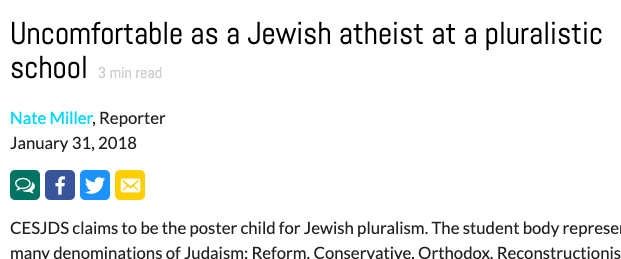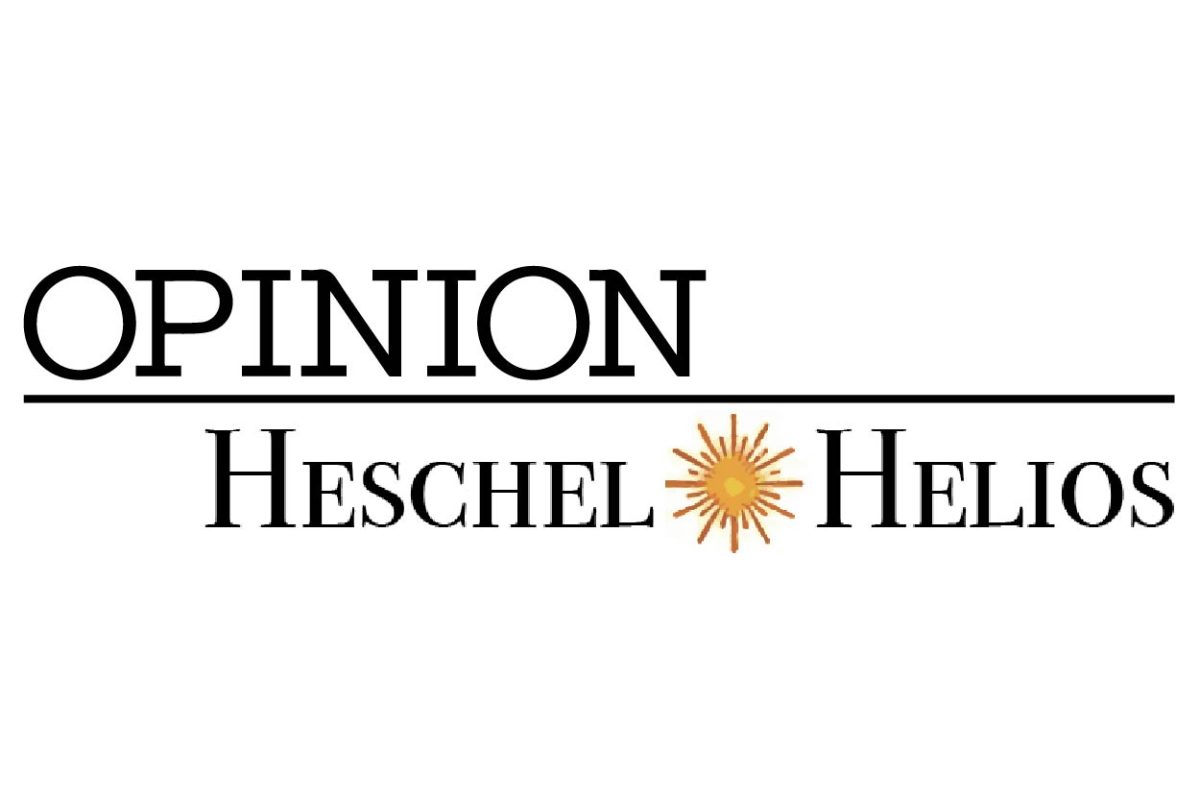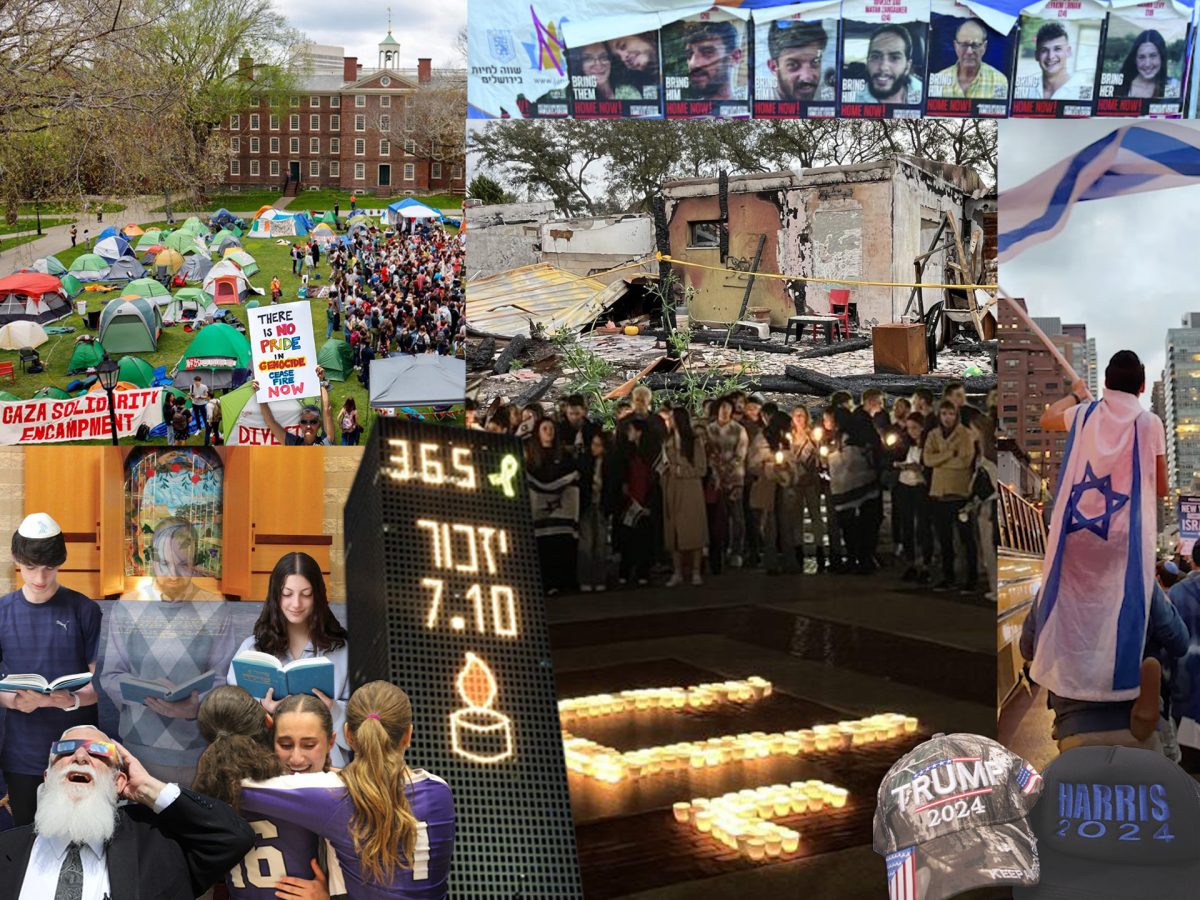CESJDS claims to be the poster child for Jewish pluralism. The student body represents many denominations of Judaism: Reform, Conservative, Orthodox, Reconstructionist and non-practicing. However, JDS can be an uncomfortable place for Jewish atheists.
A Jewish atheist is someone who ethnically or culturally Jewish but does not believe in God. I consider myself a Jewish atheist, and I want to see more acceptance of Jewish atheism at our school. According to the Huffington Post, 10-15 percent of Jews consider themselves to be atheists, and a much larger percentage have doubts about the existence of a god. Some of them practice Judaism out of habit or because they enjoy the traditions, while others do not practice at all. There have been many well known Jewish atheists throughout history, including Baruch Spinoza, Albert Einstein and Sigmund Freud. These brilliant thinkers helped change our understanding of the world, but if they had been students at JDS, they would have been made uncomfortable or even shamed.
The teachers at JDS are usually open to hearing a variety of opinions and have embraced the value of pluralism very well. In particular, my Jewish Text teachers have told me on multiple occasions that they appreciated my arguments and thoughts.
That cannot be said for many students, however. In my Biblical Commentary class, my religious views are often met with anger and disapproval from people who interpret the Bible as an accurate history of the Jewish people, written by a man in the sky. Although the purpose of this class is discussion, some of my opinions clearly make other students uncomfortable. For example, it seems at times that at JDS, one is socially expected to believe that Noah rounded up approximately eleven million animals onto one boat because he heard a voice from a man in the sky. I find this odd because even some biblical scholars who believe there is a god understand that the Bible cannot be interpreted literally.
One area in which the school could be more accommodating toward atheists and agnostics is with respect to prayer. Derekh Tefilah, the most flexible Zman Kodesh option for freshmen, involves praying and reading Torah. Options like Drisha that do not involve praying are not made available to freshmen.
Every time I utter these prayers, however, I feel hypocritical. I find my mind wandering to the Bible and how it contradicts scientific understanding and history, and I become very frustrated that I am the product of a religion that is based on a fundamental principle which I do not accept. Students are also required to stand for many of the prayers, regardless of their beliefs. On one occasion, I wanted to sit for a prayer and was told by a teacher that I could “find another school.”
Other students have quietly approached me and said they have similar feelings of discomfort about being expected to pray. Since atheism is not socially acceptable at JDS, very few students want to admit publicly that they do not believe in God.
There are a whole array of ways to approach the Bible and the question of God. I just wish that everyone could understand that pluralism means accepting all views, not just those that are perceived to be in the mainstream.
This story won First Place for First-Person Experience regarding Judaism or Israel in the 2019 Jewish Scholastic Journalism Awards. It was originally published Jan. 31, 2019 in the Lion’s Tale.












